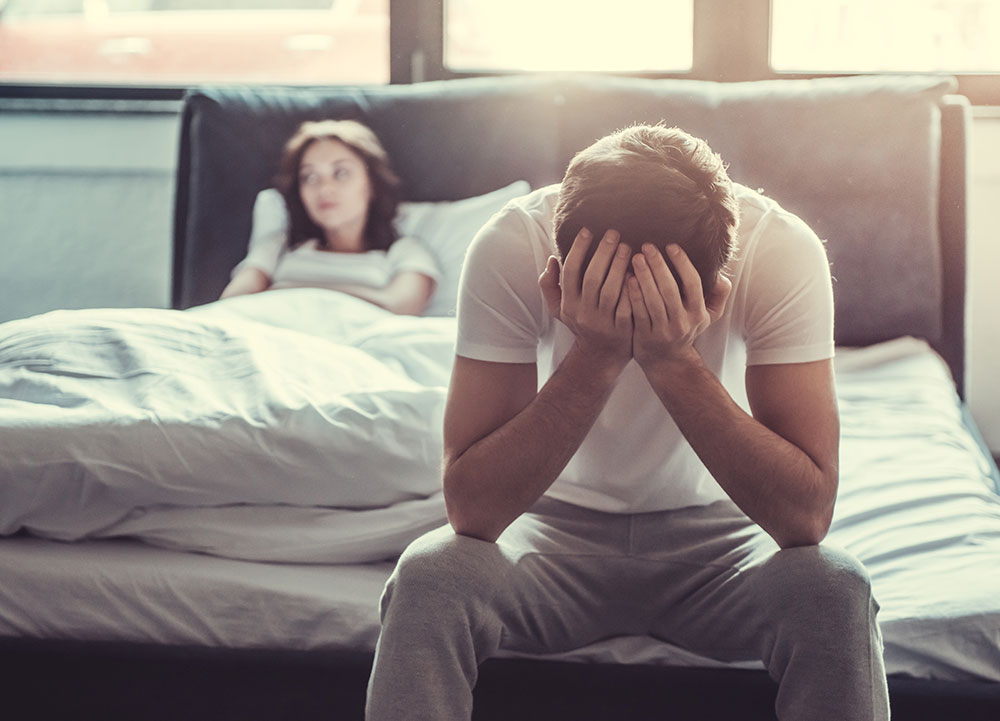
How to Create the Ideal Bedtime Routine
March 26, 2019
5 Easy Ways to Prepare for a Good Night’s Rest
Whether you suffer from sleep apnea or not, almost everyone has experienced restlessness before sleep. The constant tossing and turning might mean that your body isn’t ready for rest, but it’s midnight so that shouldn’t be the case.
Dr. Simmons understands that people struggle to fall asleep, and he has a few suggestions that will help you prepare your body for a night of fulfilling sleep.
Tip #1: Watch What You Eat and Drink
Caffeine and nicotine are stimulants and can take hours to wear off, making it challenging to fall asleep. At the Encino Center for Sleep & TMJ Disorders, we recommend avoiding those stimulants for four to six hours before bedtime.
Additionally, alcohol can make you drowsy and might seem like a good idea, but it lowers the quality of sleep you receive. By attempting to sleep while hungry, it can cause you to wake periodically throughout the night. Likewise, drinking a large amount of liquid before bed can force you to make frequent trips to the restroom, ruining your rest.
Tip #2: Stick to a Schedule
One of the easiest ways to train your body to sleep better is to stick to a schedule. By going to bed and waking up at the same time every day, you’re telling your body that its internal clock is on time—experts call this circadian rhythm. When defining a consistent schedule, your quality of sleep will improve.

Tip #3: Customize a Comfortable Bedroom
Dr. Simmons encourages patients to evaluate their bedrooms. If it’s not quiet, cool, and dark when trying to sleep, they may need to make some changes. Living in a noisy area can keep you up at night, although earplugs can quickly fix this. Some patients live in well-lit areas, so we recommend using room-darkening shades. The firmness of the mattress depends on the patient, but everyone should replace theirs after five to seven years of use.
Furthermore, if you sleep with a partner, make sure you both have enough room to sleep comfortably. Some partners suffer from sleep apnea, which can result in a lack of sleep for everyone involved. In this case, we advise patients and partners to insist on using their prescribed treatment—whether that’s CPAP or an oral appliance. If the person hasn’t sought treatment, contact Dr. Simmons today, so he can help get them the treatment they deserve.
Tip #4: Be a Creature of Habit
As you prepare for bed each night, we suggest making an evening ritual. This ritual could be reading, listening to music, taking a shower, or any other calming activity. When you do this every night, it will tell your body that it’s time for bed. However, watching TV or using your phone will trigger your mind to stay awake, so avoid those devices.
Tip #5: Ignore the Clock
A primary contributor to a restless night is overstimulating the senses. When you stare at the clock before bedtime, it can cause stress, making it harder for their body to fall asleep. If you insist on keeping the clock near your bed—sometimes an alarm clock is necessary—Dr. Simmons recommends turning the clock away so that you can’t see it. After laying in bed for 20-30 minutes (or close to that since you can’t see the clock), it might prove beneficial to do a peaceful activity like walking or yoga until you feel sleepy.
